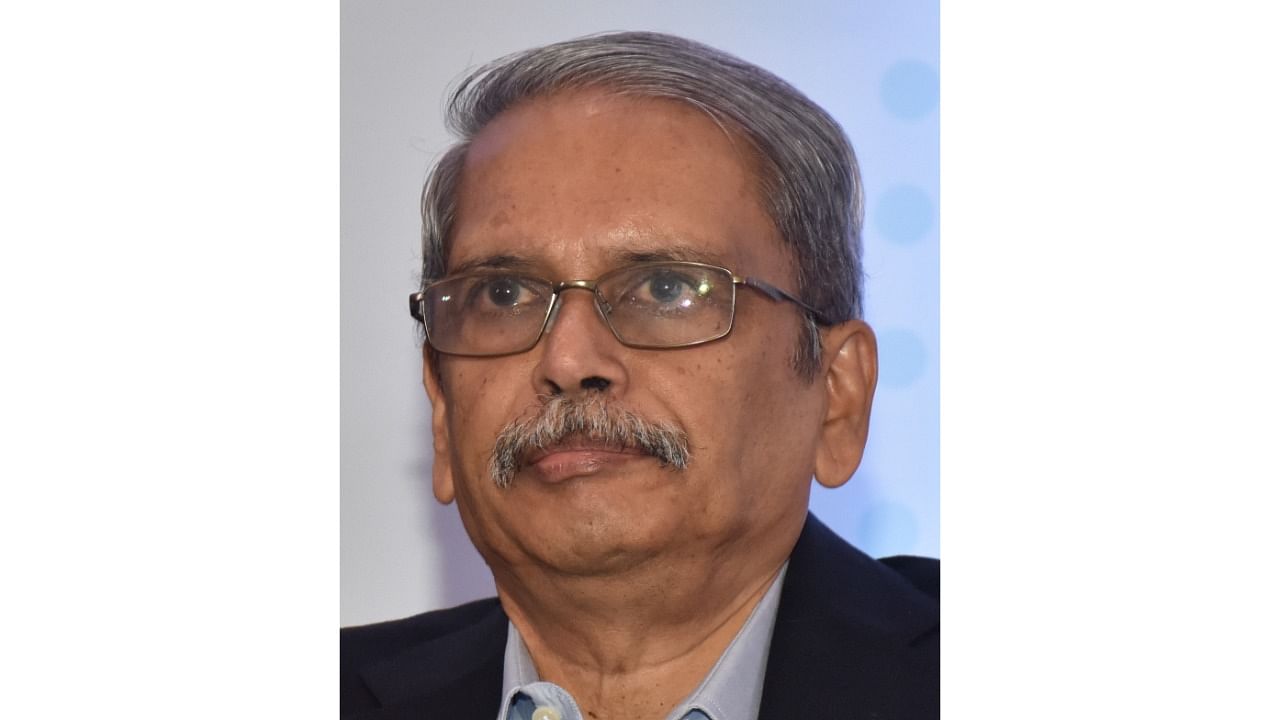
Kris Gopalakrishnan.
Credit: Special Arrangement
The state government needs to develop Karnataka’s other cities in order to continue attracting foreign investment, Infosys co-founder Kris Gopalakrishnan said. In an interview with Lavpreet Kaur and Shakshi Jain, Gopalakrishnan said that the state will be impacted by the global slowdown as 90% of the IT industry’s revenue comes from outside India. He also said that right policies and incentives need to be in place for emerging technologies to develop.
Edited Excerpts
Karnataka has historically been one of the biggest beneficiaries of foreign investment into India. What is your reading on the current investment climate in the state?
I'm very optimistic. In the medium to long term I believe that we have a great opportunity to take advantage of the focus that the rest of the world is putting on India for many reasons. As India grows,, it's an opportunity for us to take advantage. I said medium to long term. In the short term, when you are integrated more to the global economy, you will be affected by its vagaries. So right now, the global economy is going through a slow period, and it will impact Karnataka. The Indian IT services industry derives only 10% of its revenue from India, 90% of the revenue comes from outside India. So if the world slows down, industry will slow down.
Which sectors stand out in your opinion, when it comes to investments in Karnataka?
IT services continues to be a very hot sector. IT, BT, pharma, textile and automotive. There are various strengths that come into play.
What can Karnataka do to benefit from the ‘China Plus One’ policy?
In manufacturing everybody wants to be in and around Bengaluru, where the land prices are very high. So, investments have to be higher if it has to be in Bengaluru. We need to look at tier II, tier III cities where it's more economical, cheaper to set up. When you go beyond Bengaluru, yes, things are improving but we need to think about developing these cities as international hubs. We need the international airport, good connectivity and a good quality of life. So we need to kind of develop these cities to become more international or more cosmopolitan.
What can the administration do in the medium to long term to develop the tier II,III cities?
It is happening. Along with industry, the government has started the ‘Beyond Bangalore’ initiative. We have been able to see movement towards Mysore and in the Hubbali Dharwad region we have now seen movement. We just need to sustain this and we need to scale it up, if possible. So this is hard work. I'm optimistic because after ‘Beyond Bengaluru’ started, at least 25 companies have gone beyond and committed to other places.
What is your wish list from the new government in Karnataka?
Bangalore has grown very rapidly and infrastructure has not kept pace. I would say improve the quality of life, make it more cosmopolitan in other parts of the state so that it starts pulling investments to those locations.
The emerging technologies are an opportunity as well as a challenge today. So the government also has to make sure that the right policies and right incentives are there for these emerging technologies to really take off. It's a continuous effort to keep up with these emerging technologies. And last, but not the least, probably should have been first, which is reskilling of the talent.
In the past three years, the burden of the capex has been borne by the Centre and the state governments. Are you seeing private sector investment capacity building coming back?
Covid-19 created challenges for industry. We're starting to get back to normalcy, to pre Covid days. Sales of automobiles, other white goods are starting to pick up. Services are definitely picking up. Meanwhile, the global economy is slowing down. So, it will take a little bit more time for the industry to pick up steam but I'm optimistic about the automotive sector, things like travel, tourism, hospitality, which rebounded after Covid-19. I'm optimistic that the Indian industry is very, very capable, competitive and the Indian industry is mostly global.